When it comes to ensuring your home remains a safe and comfortable space, timely communication about maintenance issues is key. Whether it's a leaky faucet or a heating system failure, knowing how to articulate your concerns effectively can lead to swift solutions. In this article, we'll provide a handy letter template for tenants to request emergency repairs from their landlords. Dive in to learn how to express your needs clearly and effectively!
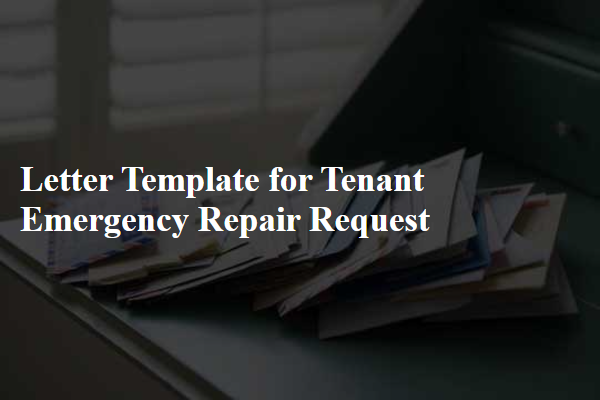
Clear description of the issue
A leaking pipe in unit 3B, located at 245 Oak Street, has created a significant problem for the tenant. Water has begun to gather on the kitchen floor, leading to concerns about potential water damage and mold growth if not addressed promptly. The leak occurs from a joint in the pipe under the sink, with water droplets continuously forming and dripping onto the floor. If this issue remains unresolved, it can create additional complications related to the structural integrity of the unit and health concerns for the tenant. Timely intervention is essential to mitigate further damage and restore living conditions.
Urgency and potential risks
Water leaks in residential properties can lead to significant structural damage and mold growth, particularly in older buildings with porous materials. A small leak, if left unattended, can escalate to over 10 gallons of wasted water per day, causing not only increased utility bills but also dampness that promotes unhealthy living conditions. In cases of plumbing failures, immediate attention is critical; for instance, a burst pipe in a multi-unit complex can affect several tenants within hours, leading to further complications like electrical hazards from water exposure. Damaged roofs after severe weather events can also pose risks, with loose shingles allowing water to penetrate, potentially resulting in severe interior damage and increased repair costs. Prioritizing urgent repair requests prevents further deterioration and safeguards tenant health in properties located in vulnerable areas prone to heavy rainfall.
Request for specific action or repair
Leaky faucets in residential properties can lead to significant water waste and increase utility bills. A faucet drip can waste approximately 3,000 gallons of water annually, which directly impacts both environmental sustainability and the tenant's monthly expenses. Moreover, continuous leaks may result in water damage to cabinets, ceilings, or surrounding walls, potentially leading to costly repairs that can reach thousands of dollars if not addressed promptly. Prioritizing these repairs not only preserves the property's condition but also enhances tenant satisfaction and reduces landlord liabilities related to property maintenance issues. Prompt action, ideally within 24 hours of reporting, is critical to mitigate further damage.
Contact information
A tenant emergency repair request typically signifies urgent issues requiring immediate attention, such as plumbing leaks or electrical failures. For effective communication, key contact information must include the tenant's full name, residential address (with apartment number), phone number (preferably a mobile number for quick response), and email address for documentation. Additionally, the request should detail the nature of the emergency, emphasizing urgency, for example, a burst pipe causing water damage or a power outage affecting multiple units in the building. Providing this comprehensive information ensures prompt and efficient service from property management or maintenance personnel.
Gratitude and courtesy language
In instances of plumbing failures in rental properties, tenants must promptly communicate issues to landlords. A leaky faucet, for example, can lead to significant water wastage, estimated at over 3,000 gallons annually, affecting both utility bills and environmental resources. Essential details regarding the location (e.g., kitchen or bathroom) and specific symptoms (such as persistent dripping or water pooling) will aid in efficient diagnosis. Requesting urgent attention, particularly for major leaks, can prevent foundational damage or even mold growth, associated with health hazards. Maintaining open communication ensures landlord awareness and reinforces tenant satisfaction regarding property management.
Letter Template For Tenant Emergency Repair Request Samples
Letter template of immediate repair request for urgent maintenance issues.
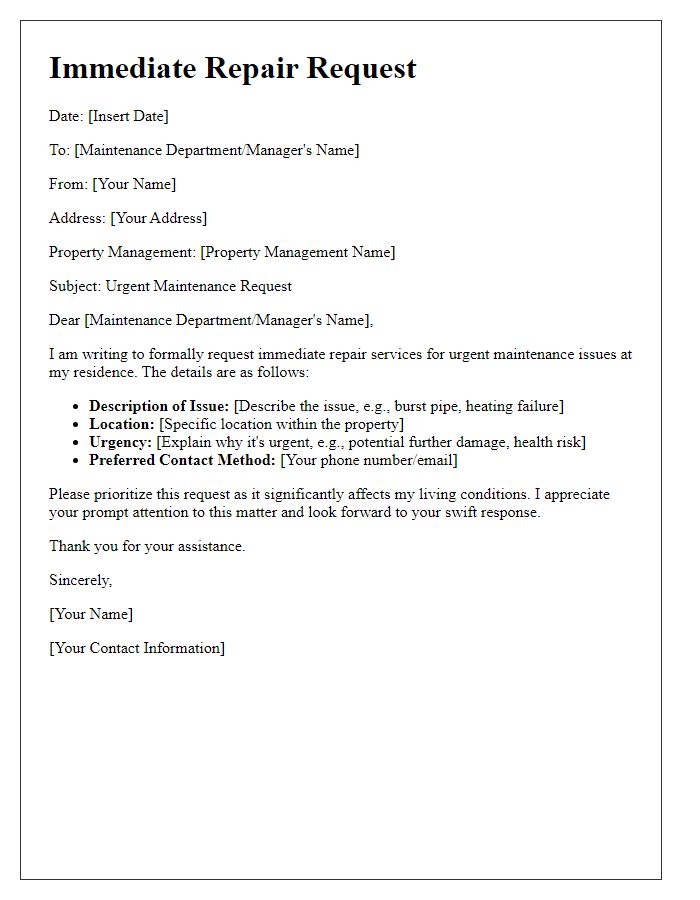
Letter template of urgent maintenance request for critical repairs needed.
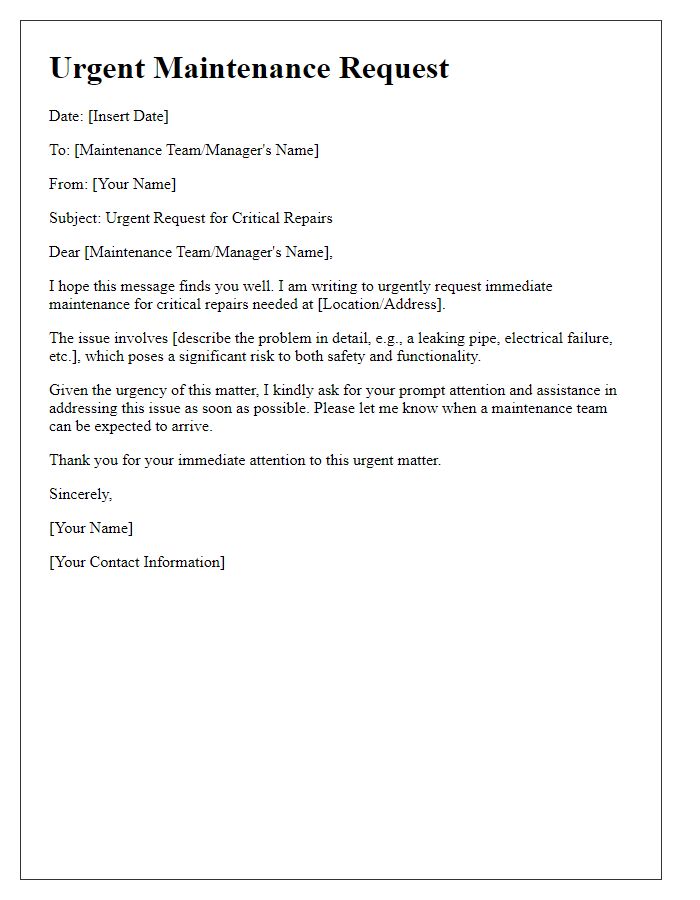
Letter template of repair alert for tenants facing emergency situations.
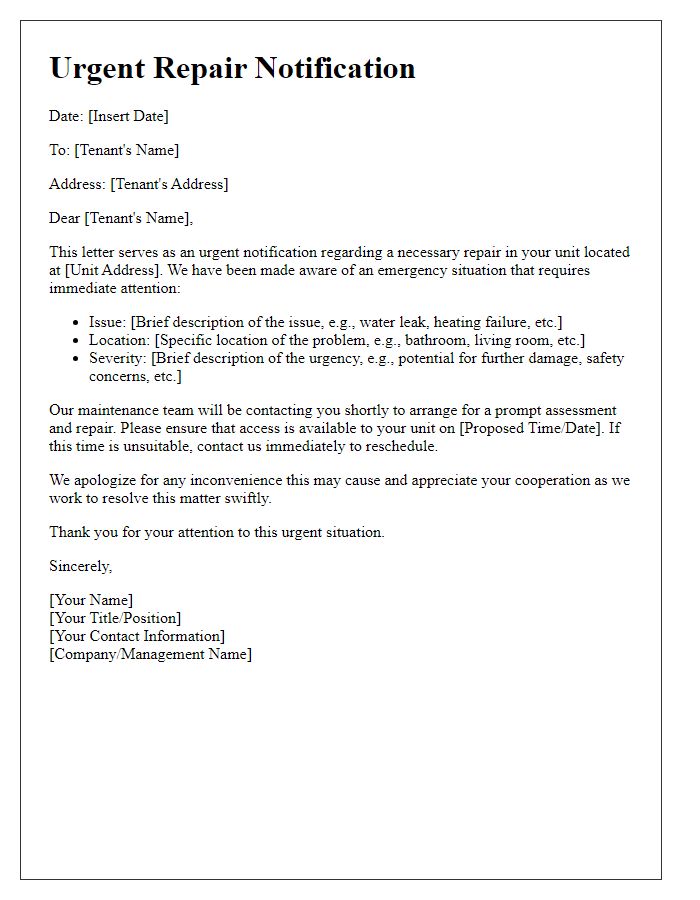
Letter template of critical repair notification for urgent tenant actions.
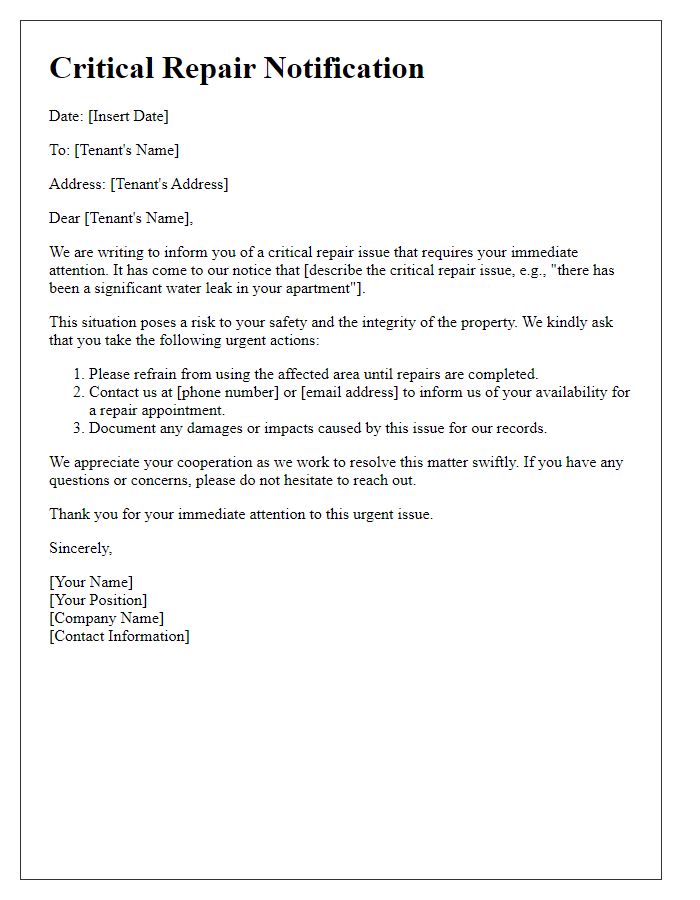

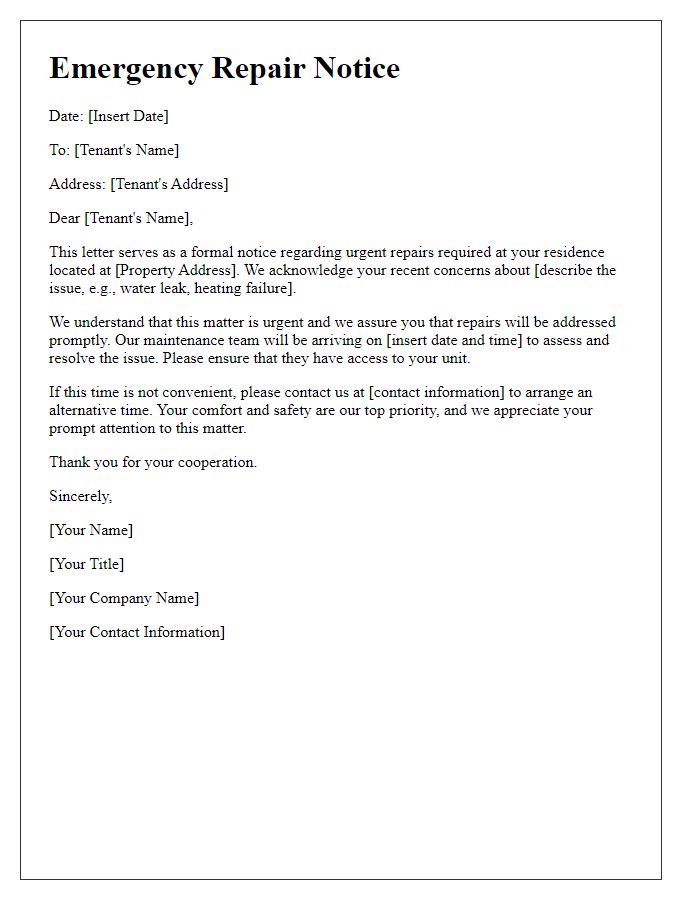
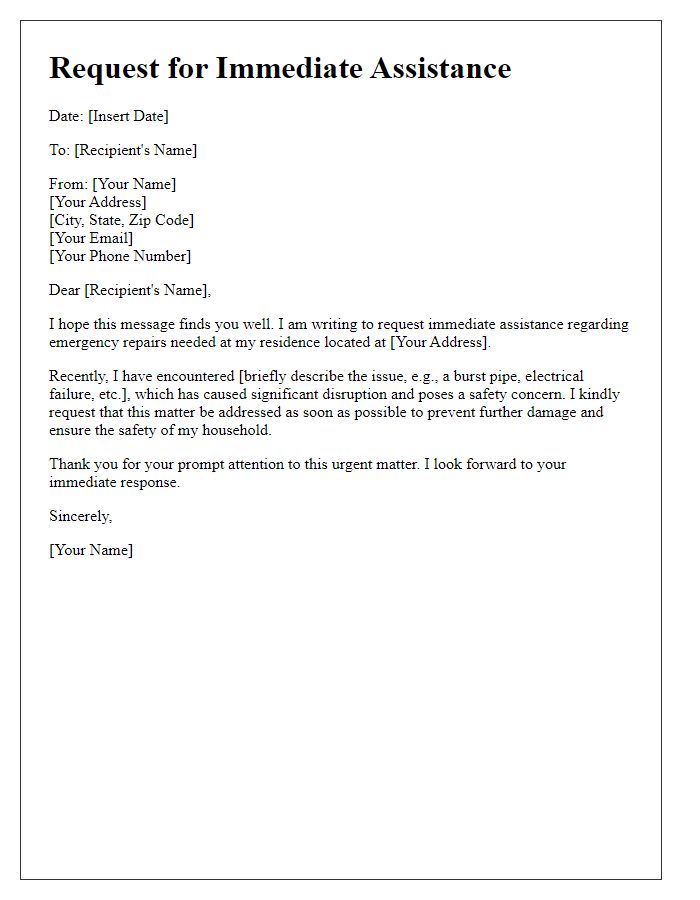
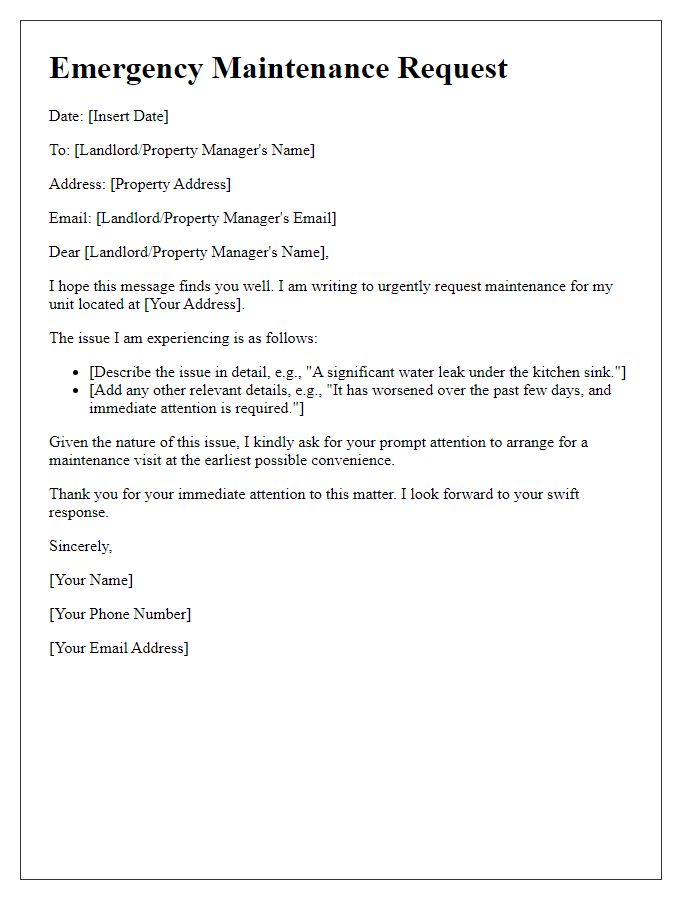
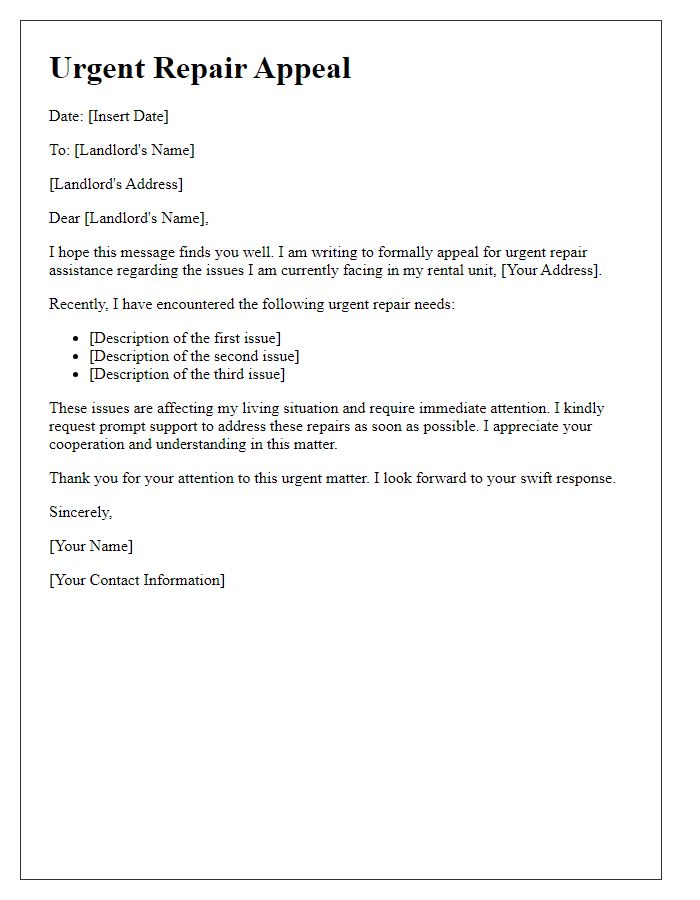
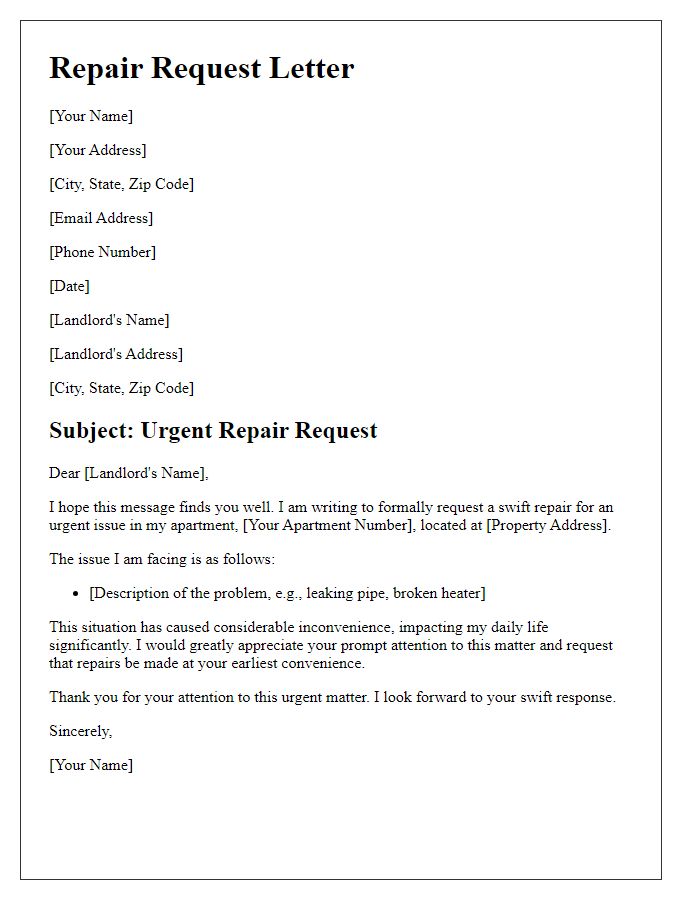
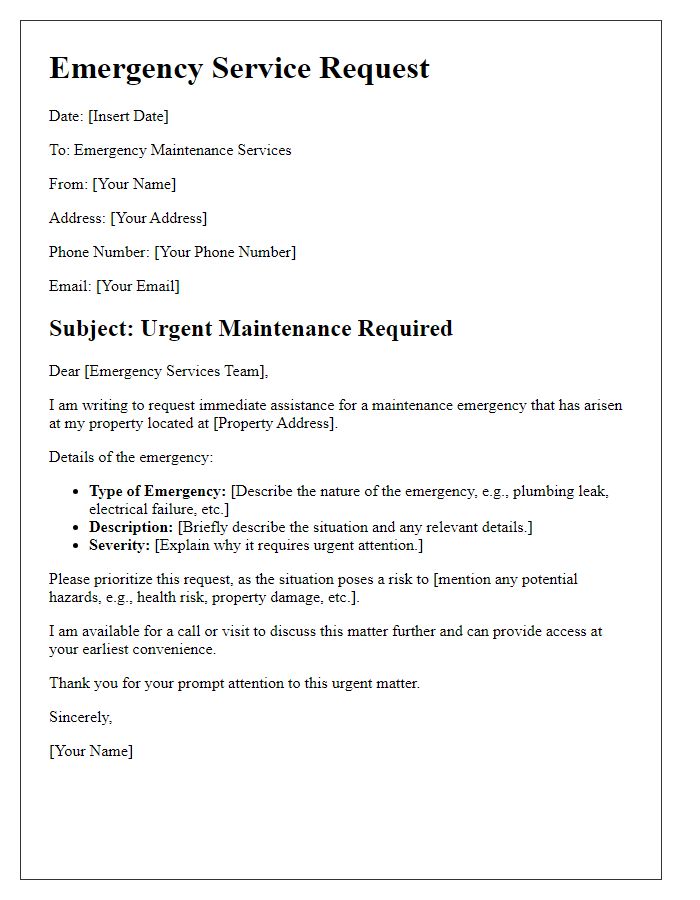


Comments